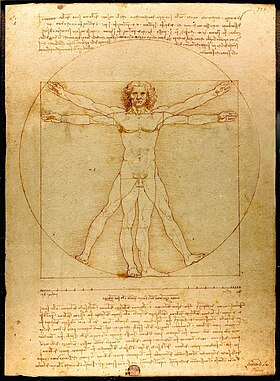
Back إنسانية مسيحية Arabic Humanismu cristianu AST Християнски хуманизъм Bulgarian Humanisme cristià Catalan Kristana humanismo Esperanto Humanismo cristiano Spanish انسانگرایی مسیحی Persian Humanisme chrétien French הומניזם נוצרי HE Humanisme Kristen ID

Christian humanism regards humanist principles like universal human dignity, individual freedom, and the importance of happiness as essential and principal or even exclusive components of the teachings of Jesus. Proponents of the term trace the concept to the Renaissance or patristic period, linking their beliefs to the scholarly movement also called 'humanism'.
Theologians such as Jens Zimmerman make a case for the concept of Christian humanism as a cogent force in the history of Christianity. In Zimmerman's account, Christian humanism as a tradition emerges from the Christian doctrine that God, in the person of Jesus, became human in order to redeem humanity, and from the further injunction for the participating human collective (the church) to act out the life of Christ.[1]
The term has been criticised by figures associated with the humanist movement, with some noting that it lacks coherence, or is in fact used to argue for the "exceptionalism" of Christianity. Some Christian humanists, for example, go so far as to suggest that other understandings of humanism are inauthentic, saying that "common humanity, universal reason, freedom, personhood, human rights, human emancipation and progress, and indeed the very notion of secularity... are literally unthinkable without their Christian humanistic roots."[2][3][4]
- ^ Zimmerman, Jens. "Introduction," in Zimmermann, Jens, ed. Re-Envisioning Christian Humanism. Oxford University Press, 2017, 5.
- ^ Zimmermann, 6-7.
- ^ Croce, Benedetto Croce. My Philosophy and Other Essays on the Moral and Political Problems of Our Time (London: Allen & Unwin, 1949)
- ^ Zimmermann, Jens. Humanism and Religion: A Call for the Renewal of Western Culture. Oxford University Press, 2012.
© MMXXIII Rich X Search. We shall prevail. All rights reserved. Rich X Search


